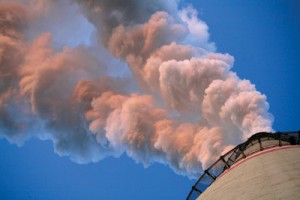U.S. Appeals Court Upholds EPA Greenhouse Gas Emission Rules
 The U.S. Court of Appeals for the District of Columbia Circuit today unanimously ruled in favor of the Environmental Protection Agency’s (EPA) legal authority to limit industrial carbon pollution under the Clean Air Act to protect Americans’ health. In addition, it dismissed challenges to EPA’s policy to focus carbon pollution reductions on the very largest industrial sources.
The U.S. Court of Appeals for the District of Columbia Circuit today unanimously ruled in favor of the Environmental Protection Agency’s (EPA) legal authority to limit industrial carbon pollution under the Clean Air Act to protect Americans’ health. In addition, it dismissed challenges to EPA’s policy to focus carbon pollution reductions on the very largest industrial sources.Carol M. Browner, former Environmental Protection Agency Administrator, and Distinguished Senior Fellow at the Center for American Progress said:
“The Court’s decision should put an end, once and for all, to any questions about the EPA’s legal authority to protect us from industrial carbon pollution through the Clean Air Act. This decision is a devastating blow to those who challenge the overwhelming scientific evidence of climate change and deny its impact on public health and welfare.”
These rules were challenged in Coalition for Responsible Regulation v. EPA. Plaintiffs included the American Petroleum Institute and other major sources of industrial carbon pollution.
The Court affirmed the following EPA policies:
•The Climate Pollution Endangerment Finding, which determined that the latest science demonstrates that climate pollution endangers human health. This finding was first made by then EPA Administrator Stephen Johnson in 2008, following the 2007 Supreme Court decision in Massachusetts v. EPA. President Bush refused to make this finding, but the Obama administration complied with the law by making it in 2009.
•The Clean Cars Standards that limit carbon pollution from motor vehicles, primarily by modernizing fuel-efficiency standards for passenger cars and light trucks. In addition to reducing carbon pollution from vehicles by 6 billion tons, these standards will help families save thousands of dollars on gasoline and decrease our dependence on oil. The standards are supported by U.S. auto makers and the United Auto Workers union, among others.
•The Timing and Tailoring Rules for carbon pollution standards for new power plants and industrial sources allow EPA to phase-in requirements for cost-effective pollution reduction standards for large industrial emitters first, which covers 70 percent of U.S. carbon pollution. EPA would not establish reduction standards for bakeries, farms, doughnut shops, and other small pollution sources.
The court dismissed the petitions by industries that would have undercut these rules, including petitions filed in May 2011 by the American Farm Bureau (AFB), and the American Petroleum Institute, asking the court to overturn the timing and tailoring rule. Just last week during a House Subcommittee on Energy and Power hearing about EPA’s proposed carbon pollution standard for new power plants, Pennsylvania Farm Bureau President Carl Shaffer complained about the uncertainty of EPA’s carbon pollution standard. He said that “court challenges to the tailoring rule could make permitting requirements immediately applicable to farmers and ranchers, if the rule is overturned.” Although AFB was a plaintiff to this law suit seeking to overturn the tailoring rule, the Court of Appeal decisively rejected its petition.
As the court’s opinion stated, “This is how science works. EPA is not required to re-prove the existence of the atom every time it approaches a scientific question.”
You can return to the main Market News page, or press the Back button on your browser.

